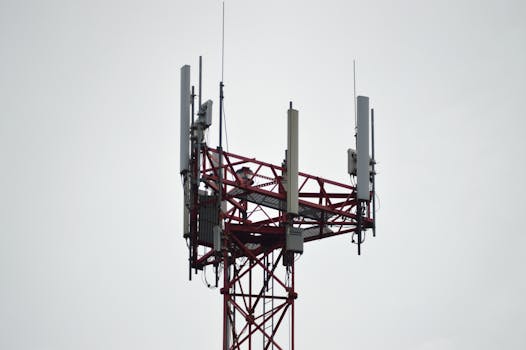Bridging the Digital Divide: The Evolution of Telecom in Africa – Bridging the Digital Divide

The Evolution of Telecom in Africa: Bridging the Digital Divide
Bridging the Digital Divide: The Evolution of Telecom in Africa has been a longstanding challenge for the continent. With a large proportion of the population lacking access to basic telecom services, the digital divide has been a significant obstacle to economic growth and development. However, in recent years, there has been a significant evolution in the telecom sector, with many African countries making significant strides in bridging the digital divide.
Current State of Telecom in Africa

Today, Africa is home to over 1.3 billion people, with a growing middle class and an increasing demand for telecom services. The continent has seen a significant increase in mobile penetration, with over 800 million mobile subscriptions. This has been driven by the availability of affordable mobile devices and the expansion of mobile networks to rural areas. In addition, there has been a significant growth in the adoption of mobile broadband services, with many Africans using their mobile devices to access the internet.
Challenges Facing the Telecom Sector in Africa

Despite the progress made, there are still significant challenges facing the telecom sector in Africa. One of the main challenges is the lack of infrastructure, particularly in rural areas. Many parts of the continent lack access to basic telecom services, including mobile coverage and internet connectivity. Additionally, the cost of telecom services is still relatively high, making it inaccessible to many Africans. Furthermore, there are concerns about the regulatory environment, with many countries having outdated laws and regulations that hinder the growth of the telecom sector.
Opportunities for Growth and Development

Despite the challenges, there are many opportunities for growth and development in the telecom sector in Africa. The increasing demand for telecom services, particularly mobile broadband, presents a significant opportunity for telecom operators to expand their services and increase their revenue. Additionally, the growth of the middle class and the increasing adoption of digital technologies present opportunities for the development of new services and applications. Furthermore, the African Continental Free Trade Area (AfCFTA) presents opportunities for telecom operators to expand their services across borders and increase their market share.
Conclusion

In conclusion, the evolution of telecom in Africa has been remarkable, with significant strides made in bridging the digital divide. While there are still challenges facing the sector, there are many opportunities for growth and development. As the continent continues to grow and develop, it is essential that the telecom sector is given the support and investment it needs to continue to evolve and meet the demands of the African people.
See more:



